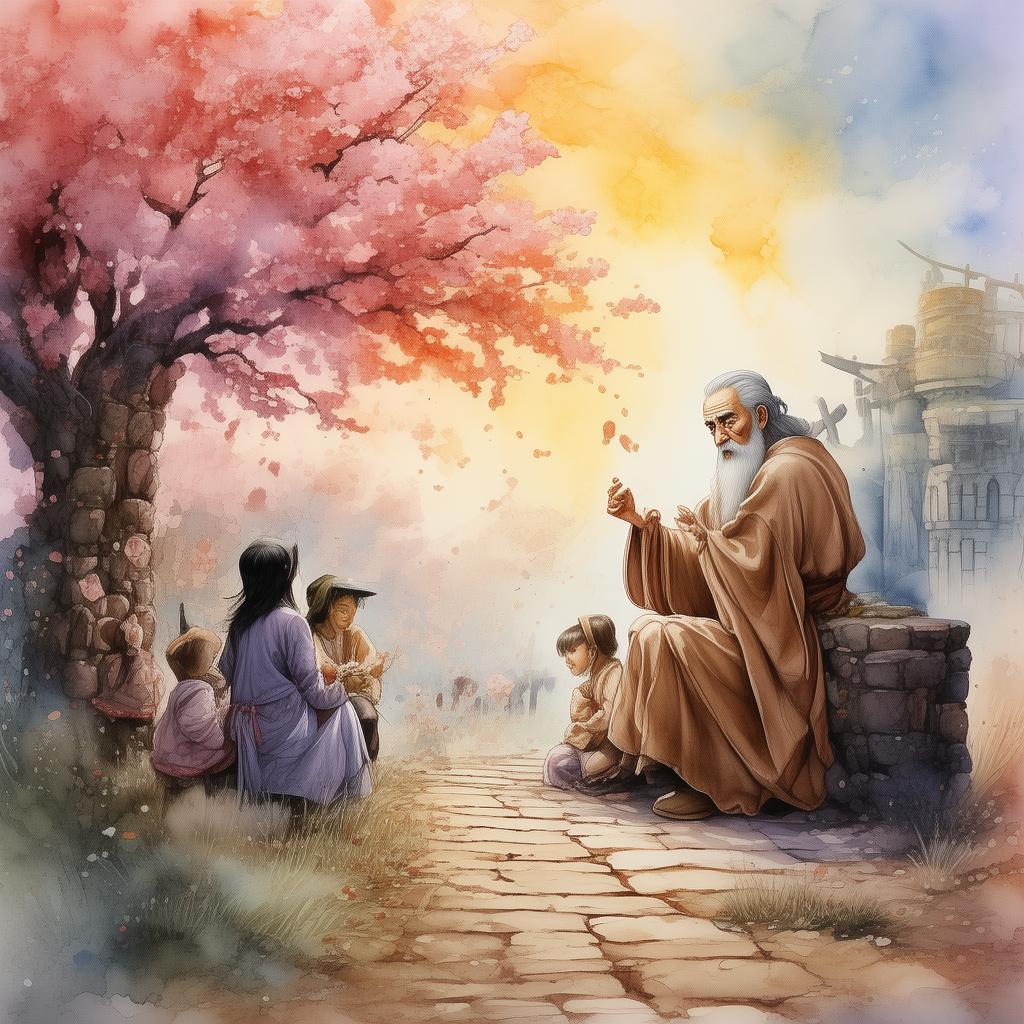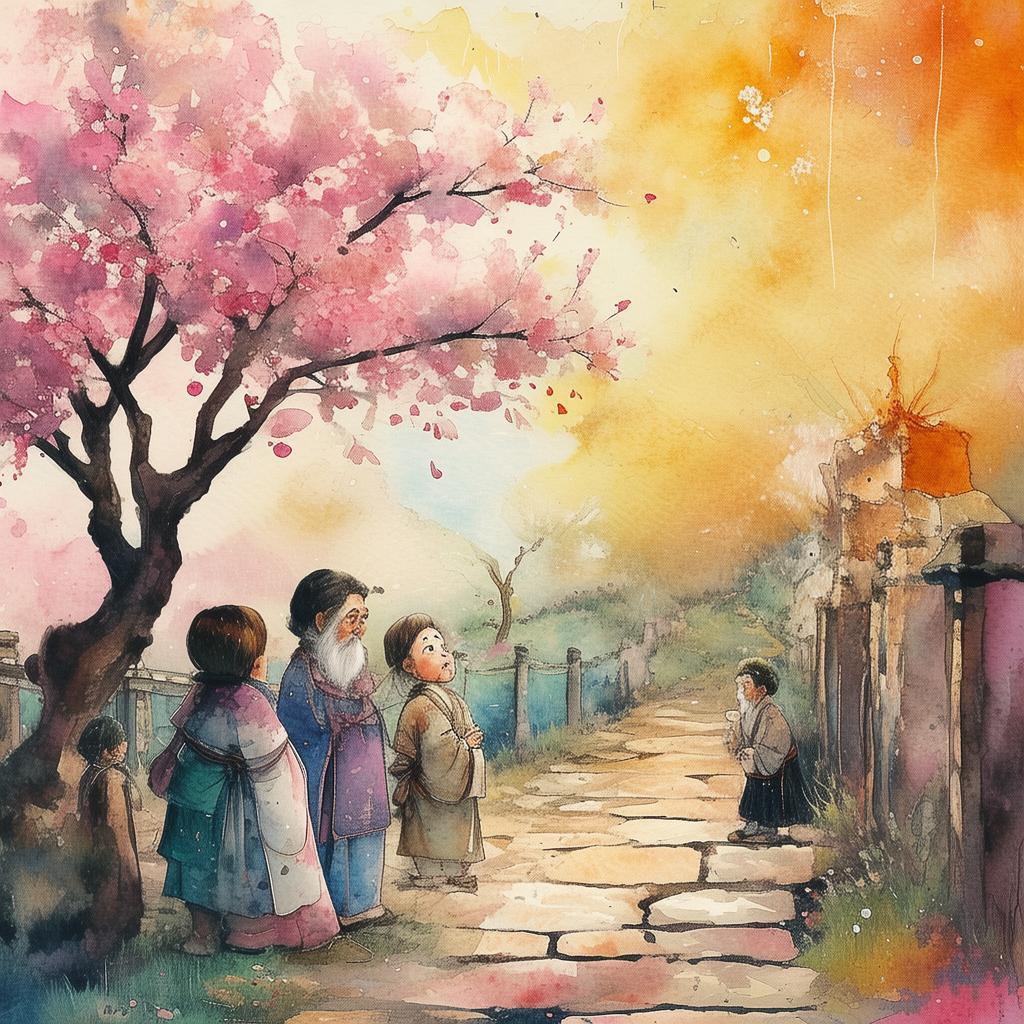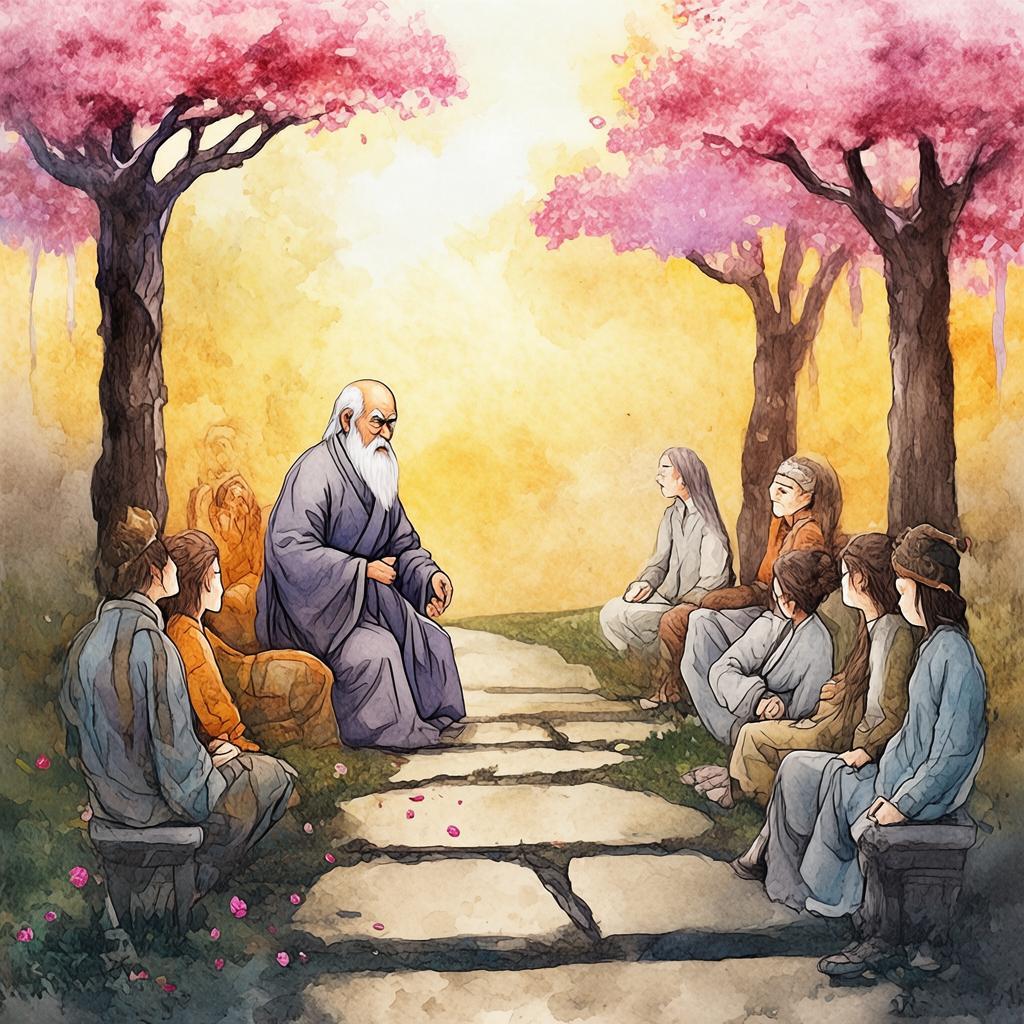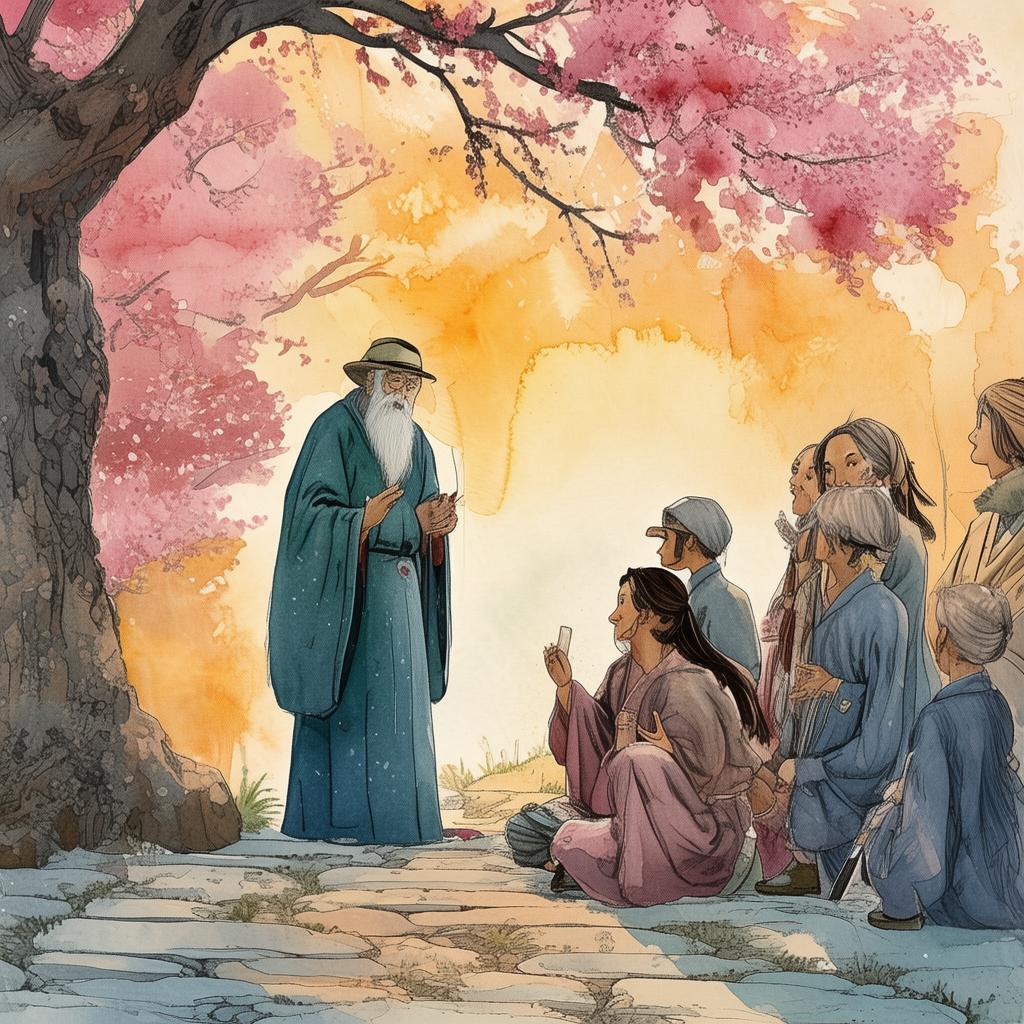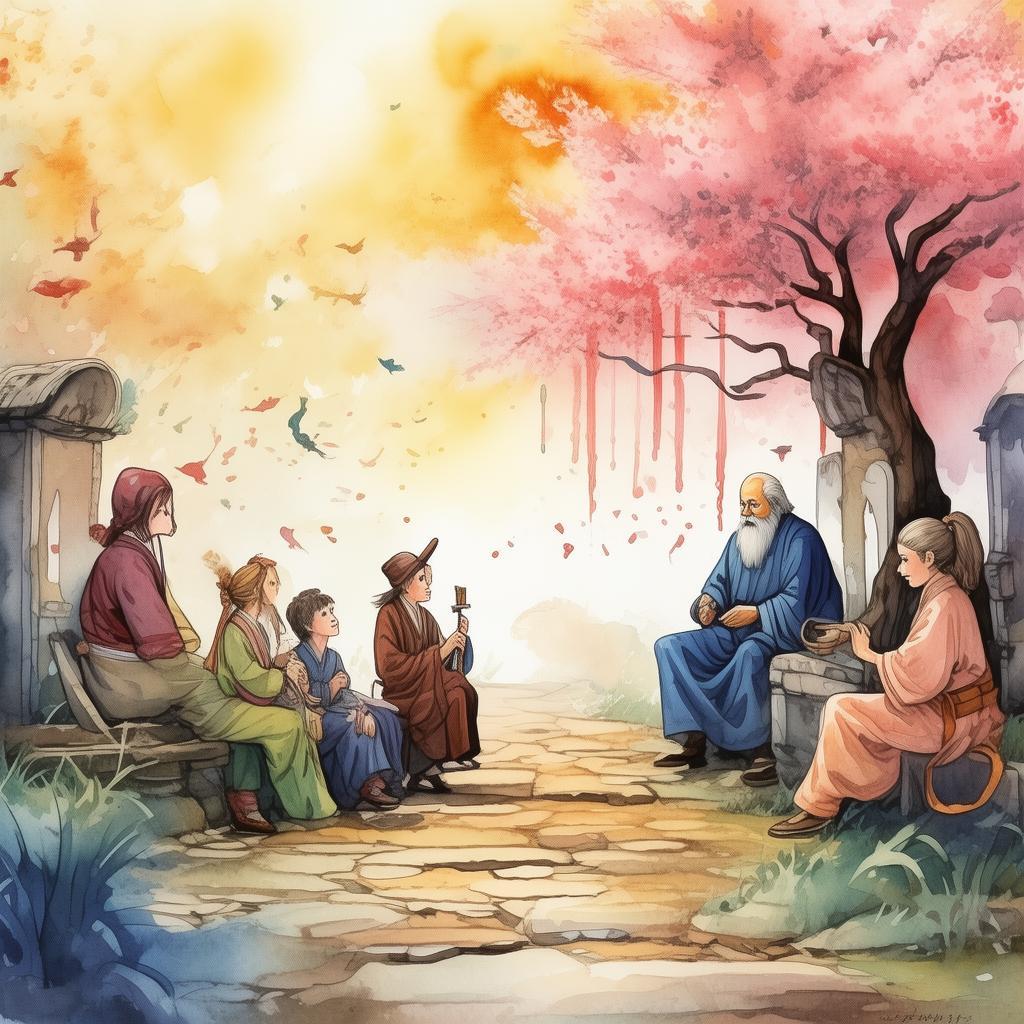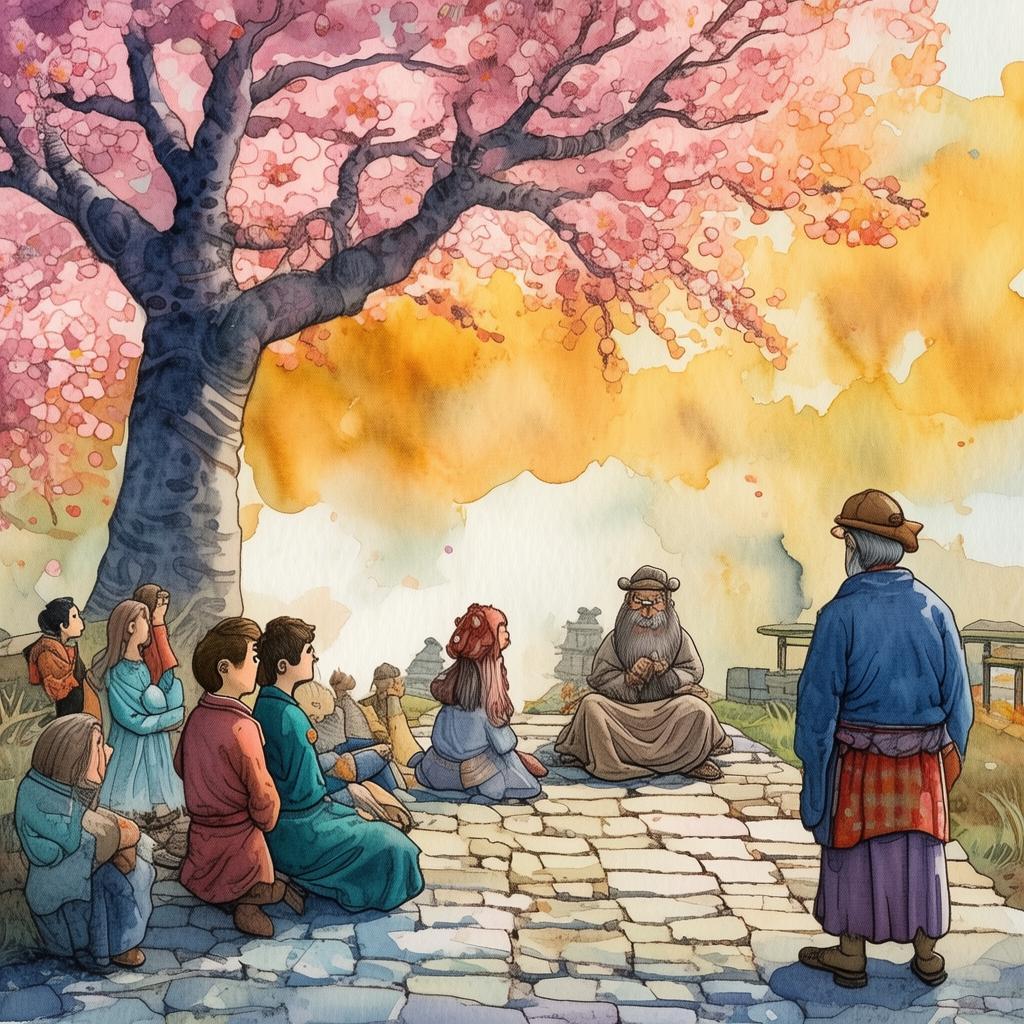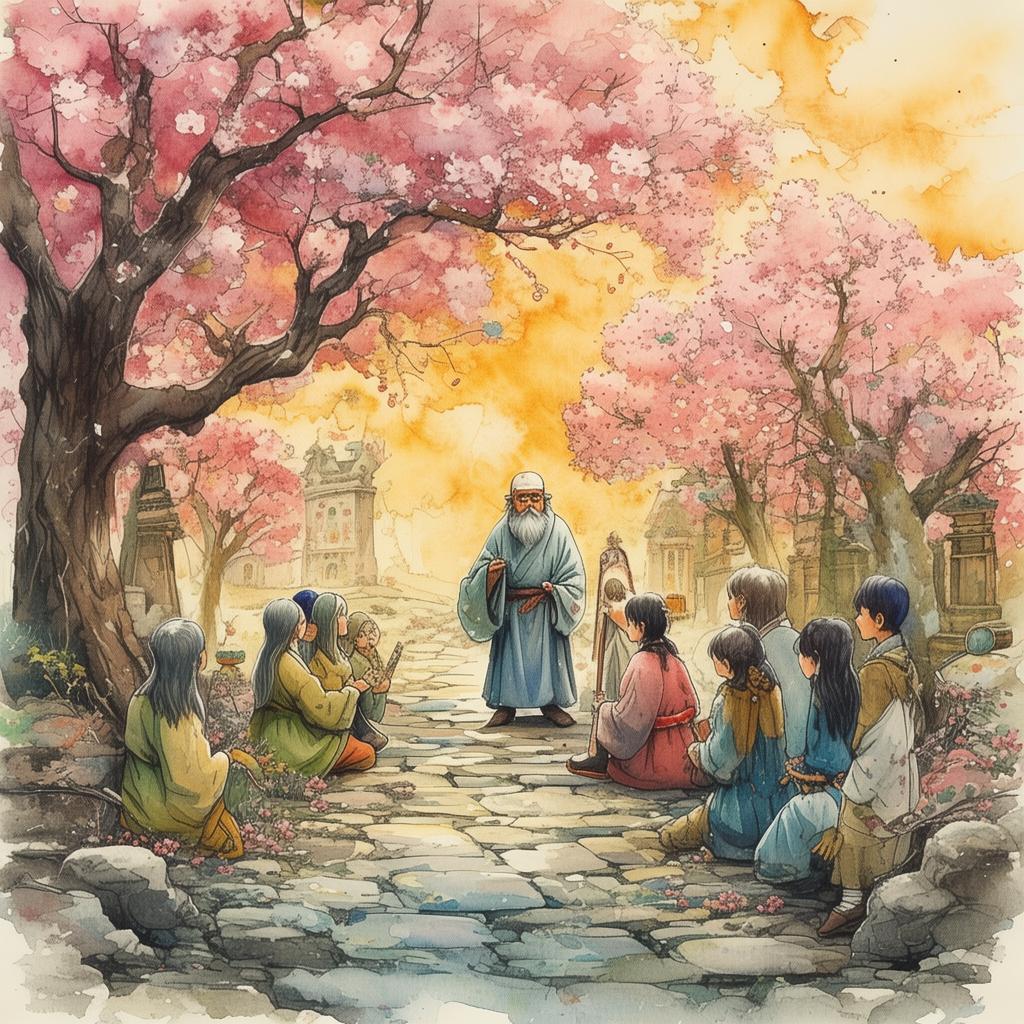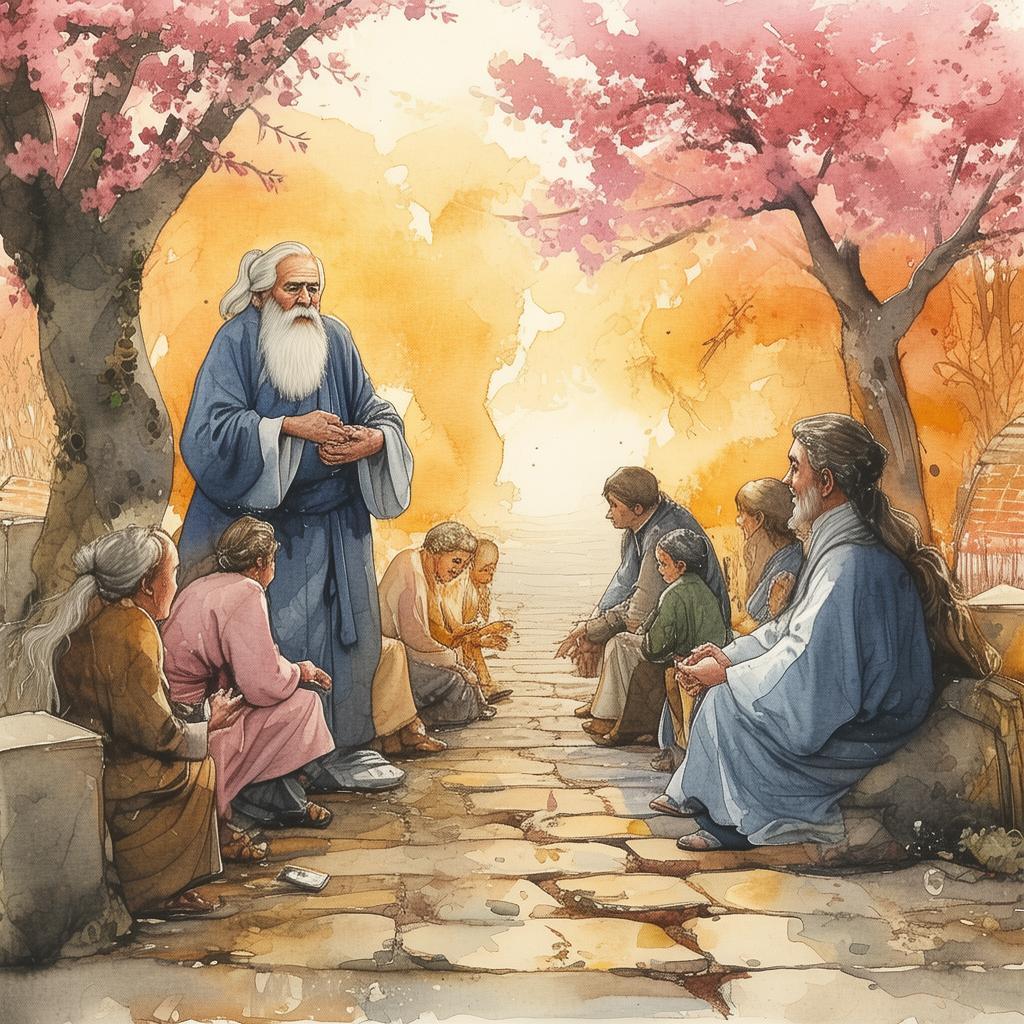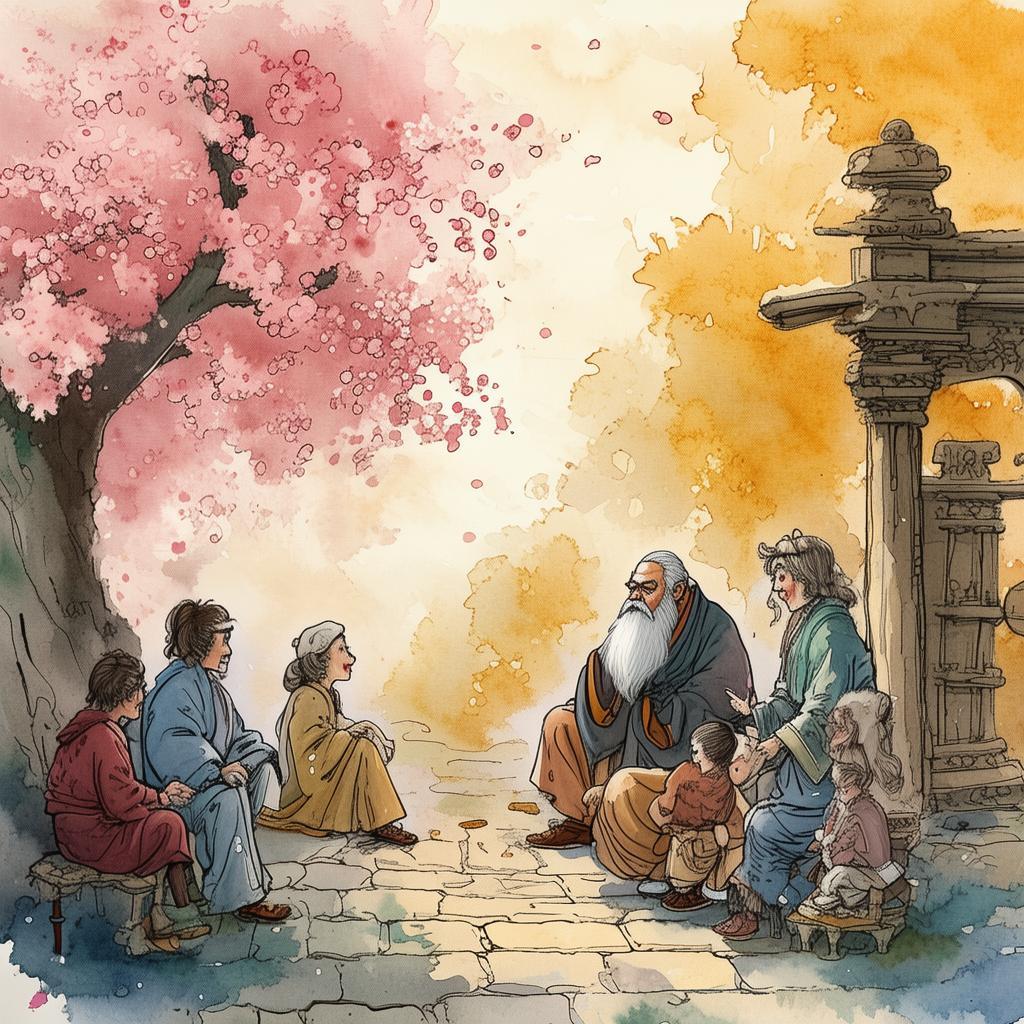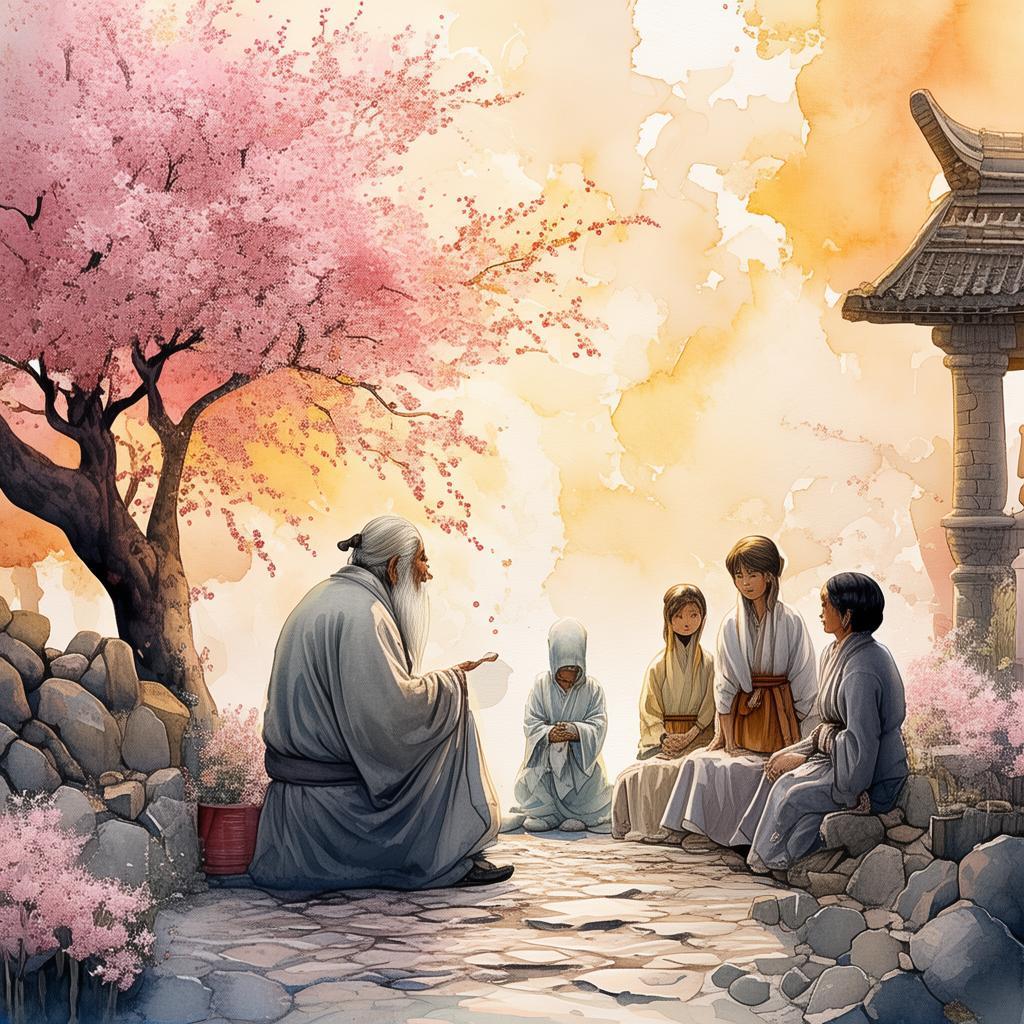The Pen That Wove Dreams: A Tale of Reality and Illusion
In the ancient city of Lushan, there lived a poet named Jingpo, whose name became synonymous with the magic of words. His stories were not just tales but were said to weave dreams into reality. It was said that if one read his poems with the right intention, they would find themselves transported into the very worlds he had created.
Jingpo was an enigma to many, a man whose eyes seemed to carry the weight of countless worlds. He spent his days in a small, dimly lit room, surrounded by stacks of books and an ancient, ornate pen that was said to have been crafted by the hands of a master artisan. This pen was no ordinary writing instrument; it was believed to possess the power to create and destroy worlds with each stroke of ink.
One evening, as the moon cast its silver glow upon the city, Jingpo sat at his desk, his pen hovering over a blank page. He was deep in thought, his mind a whirlwind of ideas. As he began to write, the words flowed effortlessly, and the room seemed to fill with a strange, otherworldly light. The lines he wrote were not just words on paper; they were the threads of a tapestry being woven into existence.
The story he was crafting was one of a dreamer named Yifan, a young man who had the ability to enter and traverse dreams. Yifan’s dreams were rich and vivid, filled with landscapes that defied the laws of nature. Jingpo’s pen described the colors of the sky, the taste of the air, and the feeling of flying through the clouds. The story grew, and with it, Yifan’s dream began to manifest in the real world.
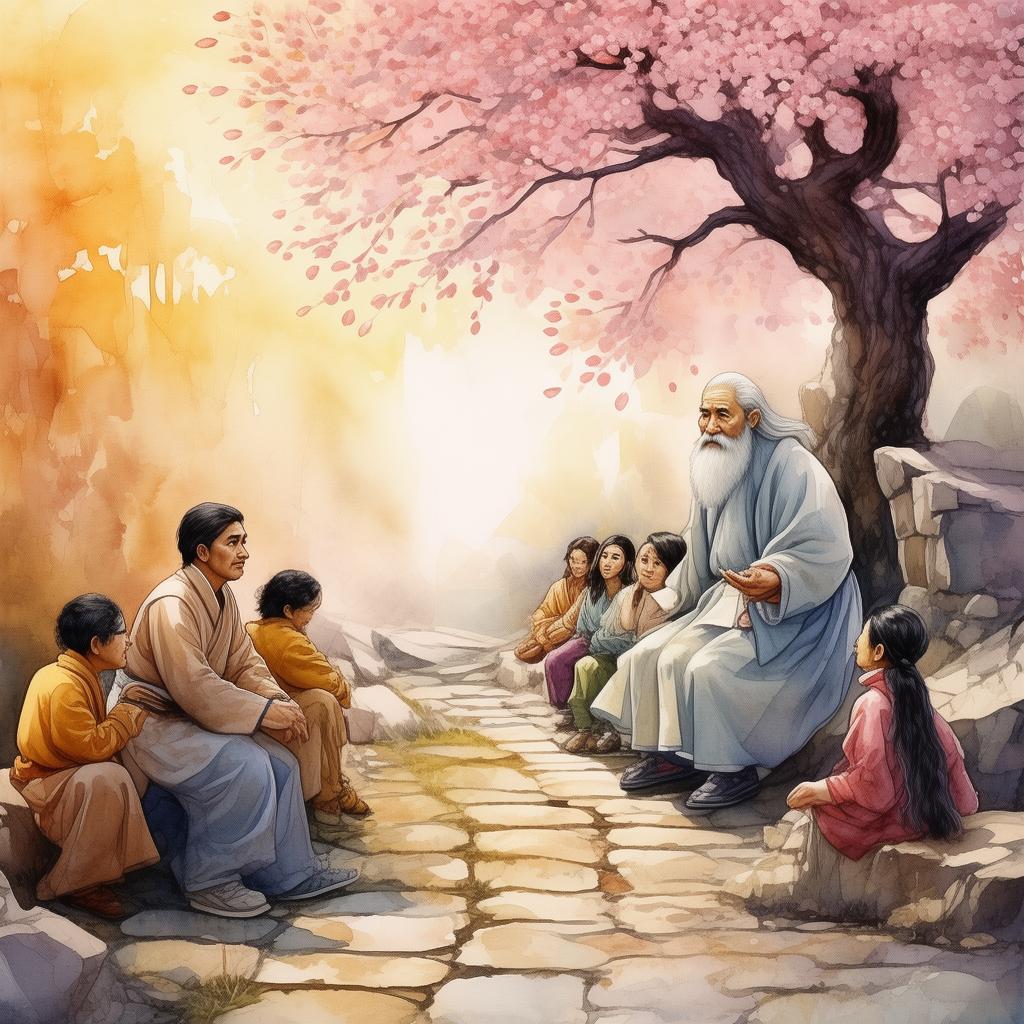
As the days passed, the dream and reality began to blur. Yifan found himself in the landscapes described by Jingpo’s pen, and those who read the story found themselves drawn into the dream as well. The city of Lushan buzzed with whispers of the dreamer and the poet, and it was not long before the entire kingdom was caught in the spell.
The king himself became a reader, and as he delved into the dream, he found himself transported to a land of wonder and peril. He was greeted by Yifan, who offered to guide him through the dream. The king, captivated, agreed, and soon found himself making decisions for the dream that would have real-world consequences.
The king’s decisions in the dream began to affect the reality of Lushan. The more he indulged in the dream, the more the real world seemed to fade away. The kingdom’s defenses weakened, and an enemy that had long been at peace began to stir. The people of Lushan grew restless, feeling the weight of the king’s absence in the dream.
Jingpo, seeing the consequences of his creation, felt a deep sense of responsibility. He knew that he must act to save his kingdom. He picked up his pen once more, but this time, he wrote of a journey to awaken the king from his dream. The words were powerful, and as he wrote, the dream began to unravel.
The king awoke, disoriented but grateful. He realized the danger he had been in and the impact his actions had had on his kingdom. Jingpo, ever the poet, wrote of the king’s return to reality, of the lessons learned, and of the dreamer who had brought him back.
The tale of Yifan and the king spread throughout the land, and the people of Lushan learned the value of balance between dreams and reality. They understood that while dreams could be a source of inspiration and creativity, they must never be allowed to overshadow the responsibilities of the waking world.
Jingpo’s pen, once a tool of creation, had now become a beacon of caution. His last poem was a testament to the delicate balance between the dream and the reality, a reminder that the power of words could shape both worlds.
The story of Jingpo and his pen became a legend, a tale that was told for generations. It was said that whenever someone spoke of the power of creativity, they would remember the poet whose pen had the power to weave dreams and reality into one seamless tapestry.
✨ Original Statement ✨
All articles published on this website (including but not limited to text, images, videos, and other content) are original or authorized for reposting and are protected by relevant laws. Without the explicit written permission of this website, no individual or organization may copy, modify, repost, or use the content for commercial purposes.
If you need to quote or cooperate, please contact this site for authorization. We reserve the right to pursue legal responsibility for any unauthorized use.
Hereby declared.
